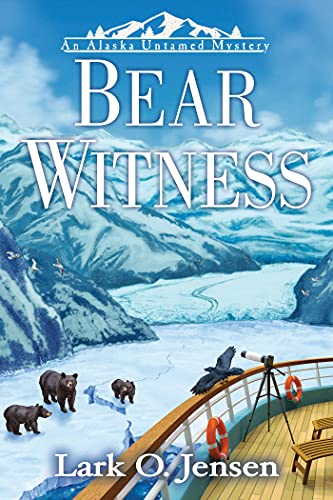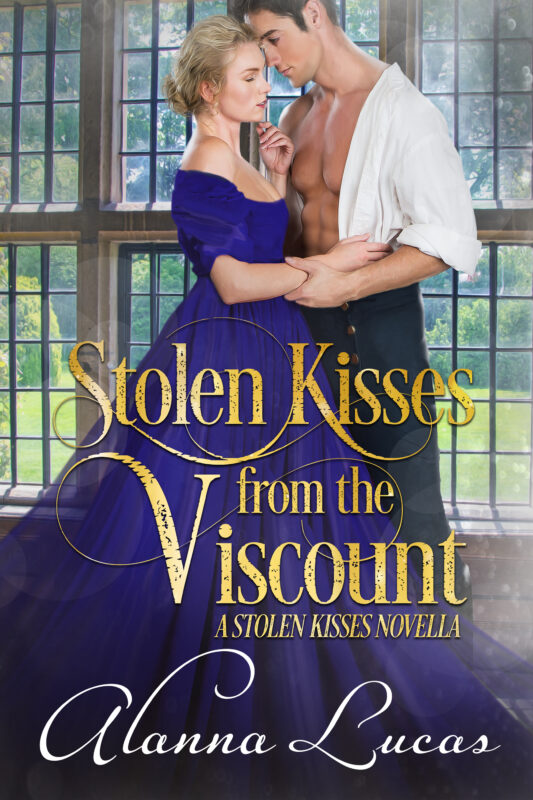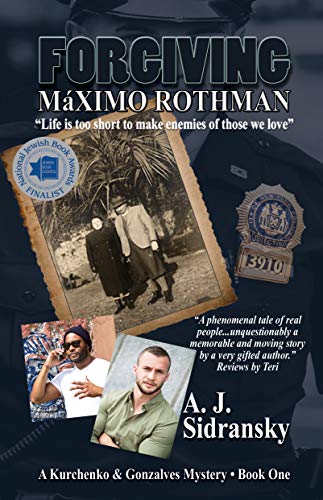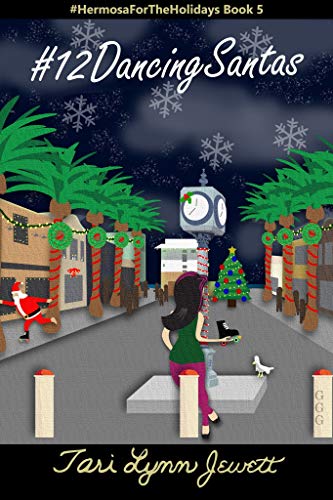Moving Right Along
September 6, 2017 by marianne h donley in category Pets, Romance & Lots of Suspense by Linda O. Johnston tagged as dogs, OCC/RWA, Pets, writing
Moving Right Along
The September OCC meeting is coming up soon, and I hope to attend. It’ll be my first one since May, when I injured my knee. But I’m moving right along now and have been able to drive, although this will be my longest driving venture since then.
I’m looking forward to attending the meeting and seeing everyone again!
Dogs!
However, as I write this I’m fairly sure I’ll just be there for lunch and the afternoon meeting. Why? Dogs! My pups rule my life, and my actual puppy, Cari, has an obedience lesson in the morning. My husband has been trainer in chief since my injury, but I want to go and learn and try to work more with Cari at home, too.
What did I miss at RWA 17?
But the afternoon OCC session should be just fine with me. For one thing, the topic will be The Best of RWA17, which should help answer the main question I asked here in this blog last month: What did I miss by not attending the RWA National Conference this year?
So even though I’ll miss PAW, I’m sure I’ll have a great time. And attending what I can this month should also help me decide if I can make it to the Birthday Bash next month!
As long as my knee, and my dogs, will let me…
Linda O. Johnston
Linda first novel was the 1995 Love Spell time travel romance A Glimpse of Forever. Since then she has published over 40 novels—mysteries and romances, including paranormal romance and romantic suspense.
Linda has two new books out for 2017. May 8th will see the release of BAD TO THE BONE, the third book in the Barkery & Biscuits Mystery Series. On June 1st, her book PROTECTOR WOLF (Alpha Force) a part of the popular Harlequin Nocturne series of paranormal romances will be published.
Linda also blogs at Killer Hobbies, Killer Characters and Midnight Ink Author blog. You can also find her on Facebook.
0 0 Read moreIs the F-word a bomb?
August 31, 2017 by The Extra Squeeze in category The Extra Squeeze by The Extra Squeeze Team, Writing tagged as HO Charles, Jenny Jensen, Rebecca Forster, The Extra Squeeze, The F bomb, writing
What does the Extra Squeeze Team think about the F-word?
Is the F word a bomb?
We’ve read books with it all over the place and yet notice that readers object to it.
Does anyone really like using it?
Would another word do?
When was it necessary?

Rebecca Forster
USA Today Bestselling author of 35 books, including the Witness series and the new Finn O’Brien series.
Is the F word a bomb?
What kind of fucking question is that?
What kind of friggin’ question is that?
What kind of question is that?
Actually, this is a great question and one I am happy to weigh in on because the use of the F-word had an impact it had on my career.
I began my career as a romance writer (I was fired from this gig because I kept killing characters before they fell in love. My editor suggested a genre change.) I never used the F-word when I wrote romance. When I moved to contemporary women’s fiction I used it sparingly in these longer, more intricately plotted books (the word was only uttered by bad guys).
When I upped the ante and moved into a male dominated genre – legal thrillers – everything changed. Writing became tighter, characters multi-faceted, plots ‘torn from the headlines’ were much grittier. In my writing the F-bomb was spoken by hard charging attorneys and socially marginalized criminals alike to underscore their tenacity for fighting for justice in the former instance or illustrate disdain for the system in the latter.
Hostile Witness* was the first book where I really let loose. Lots of male thriller writers used the word, why not me? My editor at Penguin/Putnam had no problem with it and approved the book. When the Hostile Witness was traditionally published, I received no letters of complaint.
Then came the Internet. I republished the first three books of the Witness Series* and readers started posting reviews as easily as they clicked their Kindle. I remember the first bad review I received because of my use of the F word. It said, “The language in this book is vile. I will never read this author again.”
That stopped me cold, so I went back to the files and searched how many times I had used the F-word. I was shocked and embarrassed by what I found. In my quest to establish myself as a hard-edged thriller writer, I had gone overboard. Using profanity to the degree I had took the reader out of the story at best and offended them at worst. I asked myself, was there a better way to write a scene? A better way to inform a character? Had I been a lazy author and fallen back on a word rather than my skill to get a point across?
The answer to all these questions was yes. Now I use the word friggin’ or cut the word off at Fu — and let the reader’s mind fill in the blank. Bottom line, I took the review to heart, objectively looked at my work and made an informed decision before I re-edited the book. Did I lose anything by banning the F-word?
(F-word deleted) no.
*Hostile Witness is Free to readers.
**Sign up for my mailing list and get Hostile Witness and the Spotlight Novella, Hannah’s Diary, Free.

Jenny Jensen
Developmental editor who has worked for twenty plus years with new and established authors of both fiction and non-fiction, traditional and indie.
The Urban Dictionary defines ‘F-bomb’ as “the strongest weapon in one’s verbal arsenal” (a bit extreme, but it makes the point). Is it necessary to use in fiction? No, not necessary, but sometimes appropriate. The plot, the scene, the character, the action, the tone can all come together to make the F-word the only adjective or expletive that works. In that case, it should be a shocker – a strong, realistic part of the narrative rhythm. The word should be chosen with consideration and, by all the writing gods, don’t overuse it. Repetition strips the word of any value; it just becomes distasteful, silly and embarrassingly adolescent.
It wasn’t long ago a writer would never consider using the word, nor would a publisher let them, although the F word was understood to have the strength of a bomb.
from The Maltese Falcon (Dashiell Hammett, 1930)
The boy spoke two words, the first a short guttural verb, the second ”you”.
“People lose teeth talking like that.” Spade’s voice was still amiable though his face had become wooden.
Great, right!? There are so many options for word smithing around the F-word but that requires thought and skill. Too many authors take the easy way out and use it as verb, adjective and noun. That’s just lazy or the mark of a poor writer.
I recently ran across this Amazon review:
I gave it 5 stars, because the writing, the sense of humor the detective has, and the story! All great! In fact, you are such a good writer, you don’t need to use the “F” word as much as you do! Your characters are great without it!
Such a good writer…you don’t need to use… the reviewer said. That’s exactly what I mean.

Well, a bomb is something designed to explode on impact, so I guess if you want to f-bomb effectively, it needs to be unexpected! In that case, it’ll only detonate properly in the most delicate, sweetest and appeasing of godly novels! But, of course, readers don’t always like to be shocked so hard that they fall off their chairs, and using language that is not in-keeping with the story will only make it jar, in my opinion. As writers, we aim to torture and make our readers emotional from time to time, but there’s intent and then there’s intent.
I don’t mind using swear words – their offensiveness changes over time, and the F-bomb (being polite for you all here), is hardly the most offensive word or phrase out there at the moment. In some novels it’s absolutely appropriate to include swearing, and the target readership will reflect that. I do think over-reliance on a single swear word is a negative thing though. There are so many varied ways of swearing, and it’s up to the author to come up with setting- or character-appropriate vocabulary. In my fantasy novels, I frequently use ‘follocks!‘ (an obvious portmanteau of f**k and boll**ks), because it conveys the emotion I want, but also carries humour and sets the imaginary world apart from this one.
What do you think of using the F-word in fiction?
Ever wonder what industry professionals think about the issues that can really impact our careers? Each month The Extra Squeeze features a fresh topic related to books and publishing.
Amazon mover and shaker Rebecca Forster and her handpicked team of book professionals offer frank responses from the POV of each of their specialties — Writing, Editing, PR/Biz Development, and Cover Design.
Do you have a question for The Extra Squeeze? Contact us here.

You’ve Come A Long Way, Baby!
August 22, 2017 by Veronica Jorge in category Write From the Heart by Veronica Jorge tagged as Veronica Jorge, women's history, writing You’ve come a long way, baby!
You’ve come a long way, baby!
Have we?
I recently read a debut novel by one of my fellow members in the Historical Novel Society. The book relates the story of a young women struggling against prejudice and hypocrisy in the 1800s, but it equally applies to women today.
As I read the book, I recalled the saying, “But, for the grace of God, there go I,” because indeed, this girl’s life could have been mine… or yours.
This month I would like to share a review I wrote for her book and I hope you will all be inspired to read it. I’m sure you’ll be as moved as I was, and still am.

Lilli De Jong
Janet Benton
Nan A. Talese
May 2017
ISBN 9780385541459
Picture yourself in a theater. The lights begin to dim and the audience quiets. A paper crinkles as the last candy is unwrapped. Overhead, a beam casts its glow on the stage and illuminates a Quaker woman seated in a plain, high back wooden chair, a baby nestled against her breast. The woman begins to speak and her soft even tone hypnotizes you. When her eyes find you, it might as well be you in the spotlight because her words expose and reveal the attitudes and prejudices in your heart.
Such is the power of Janet Benton’s novel, Lilli de Jong.
In mesmerizing detail, like a friend relating a most intimate story, we personally hear and are moved by a young woman’s encounter with the realities of her time, while Janet Benton’s tender and elegant prose carry us protectively through the most heart-rending scenes.
“Home” ceases to exist. Men, and women alike, take advantage of her misfortunes. Society has no place or tolerance for “fallen” women. And religion, a refuge for the soul, provides no compassionate haven for women “like her.”
Janet Benton tells a compelling story of the plight of unwed mothers; situations, unfortunately, as real and relevant today as in the 1800s, the time period in which the story unfolds. As far as society has progressed, difficulties still persist, as mothers who are single-parents will attest, in terms of finding employment, child-care, housing, and… honor and respect.
Lilli’s story ends. The audience solemnly exits the theater.
And this reader hopes that each of us will be more inclined toward mercy than judgement, and earnestly look for opportunities to extend a helping hand.
See you next time on September 22nd.
Veronica Jorge
 Manager, Educator, and former High School Social Studies teacher, Veronica credits her love of history to the potpourri of cultures that make up her own life and to her upbringing in diverse Brooklyn, New York. Her genres of choice are Historical Fiction where she always makes new discoveries and Children’s Picture Books because there are so many wonderful worlds yet to be imagined and visited. She currently resides in Macungie, PA.
Manager, Educator, and former High School Social Studies teacher, Veronica credits her love of history to the potpourri of cultures that make up her own life and to her upbringing in diverse Brooklyn, New York. Her genres of choice are Historical Fiction where she always makes new discoveries and Children’s Picture Books because there are so many wonderful worlds yet to be imagined and visited. She currently resides in Macungie, PA.
0 0 Read more
SEARCHING FOR THE CORRECT WORD
August 20, 2017 by Meriam Wilhelm in category A Bit of Magic by Meriam Wilhelm tagged as author, sewing, stories, words, writing I was recently at a get together where there were guests of all ages in attendance. We were engaged in a lively discussion about the latest techniques for sewing a baby quilt and I was trying to remember the name of a particular tool I’ve used. Needless to say, I was stumbling around for the correct word.
I was recently at a get together where there were guests of all ages in attendance. We were engaged in a lively discussion about the latest techniques for sewing a baby quilt and I was trying to remember the name of a particular tool I’ve used. Needless to say, I was stumbling around for the correct word.
I said, ‘You know what it’s called. Help me out. It’s um a …thingamajig…you know..’
And so it began…
“Oh, I know what you’re talking about. You mean a whatchamacallit?”
“No, she wants a thingamajiggery”
“Or do you mean a thingamabob?”
“We call those a thingerdoodle.”
“You’re all making it too difficult. Just call it a whatsit.”
“A thingermabobble is what my mom always called it.”
“Maybe a doodad?”
“You mean a oojamaflip?”
Wait – hold on a minute.
Now not only couldn’t I remember the original word I’d been searching for, now I had a second one to worry about. What the heck was a oojamaflip?
I was just trying to remember the name for an Interchangeable Dual Feed sewing machine foot. How did we get so far off track? And who knew there were so many substitute words for thingamajig. By the time I remembered the name I was originally searching for, it no longer seemed important. I was plagued with a new need-to-know word. What did oojamaflip mean and was it the same as thingamajig?
I never did get to talk about this incredible sewing tool as everyone was caught up in their stories of why they use the term they used. In the meantime, I grabbed my phone and typed in oojamaflip. Apparently it’s slang for a thing whose name is temporarily forgotten and used more in Britain than the U.S. It can also be spelled whojamaflip or hoojamaflip.
Next time I forget the name of something I’m going to need to remember to say oojamaflip…that is if I can remember it.

For thirty-five years, Meriam Wilhelm worked in education. From high school teacher to college dean to her favorite job of elementary school principal, she took an excitingly non-traditional pathway, always passionate about shaping young minds. When she retired, something magical happened. Wilhelm was bitten by the writing bug and her chosen genre was paranormal romance – specifically of the witchy persuasion. Now, six books into The Witches of New Moon Beach series, she is bringing her passion for learning to her new profession. A world traveler, Wilhelm has researched the history and culture of witchcraft and found inspiration as far away as Bergen, Norway and as close as her home town. A Redondo Beach resident, she decided there was no better location for her family of witches to reside than the beaches outside her own front door. “I think there is magic in everyone you meet,” Wilhelm says. “You just have to look for it.” In her case, you also have to write about that magic. Currently, Wilhelm is working on book seven, The Witch of Bergen. She is the recipient of the Paranormal Romance Guild Reviewers Choice Award. She is married and the mother of three grown children and a brand new grandma. When not writing or traveling, Meriam Wilhelm can be found at her sewing machine, at yoga class or, of course, reading.
Voice, Style, Tone
August 19, 2017 by Jenny Jensen in category On writing . . . by Jenny Jensen tagged as editing, style. tone, voice, writing
As much advice exists about how to write as about how to vote. TMI? Sometimes it makes me long for a cabin near Walden Pond, a quill pen and a stack of foolscap. (Not really sure what that is but I love the word!) In my experience the best approach is to just write – and then go back and right your writing. Edit.
Voice, Style, and Tone Are All Critical
There’s so much to be aware of when you edit what you’ve written. From the macro view voice, style and tone are all critical. Explanations of those elements vary but we all know they each impact our writing. Some definition is required to make the concepts applicable; for me, style and voice are like fraternal twins – really close but not exactly the same.
Voice and Style
As an editor I’m dialed into the author’s voice after the first three paragraphs of a manuscript. As a reader I know within the first three pages if I like an author’s voice – just like we all know what music we like. Voice is a reflection of the author’s mind and personality and like minds and personality, it develops and matures with age. Depending on the writer’s level of skill and experience I can hear a strong voice, or a well-emulated voice or a developing voice. If I hear a voice that’s not distinct and consistent the writer and I work toward finding her natural rhythm for word choice, phrasing, even punctuation – her voice.
Voice shifts from 3rd person narrative to dialog and differs between characters. Look carefully at the voice of each character. Does the language suit the character? A pierced and tattooed good time girl speaks differently than a buttoned up college professor. An author’s style often changes from story to story, but the voice is always there. I think voice comes from the gut and it grows and develops and gets better with use. Style is more a conscious effort and is changeable from book to book depending on what the story needs.
Tone
Tone is less ephemeral. It’s the mood. Every plot has an overall tone and under that umbrella each scene has a tone appropriate to the action; dialog reflects tone. Tone is what moves the emotions of the story. When you read over your 1000 words per day listen to be sure the tone is always appropriate. A cozy mystery has a murder, of course, but the tone is off if it is described in the tone of a gritty noir.
The body lay crumpled at the foot of the staircase. Pepper drew a sharp breath. There was so much blood.
Versus
Sgt. Pepper stared critically at the broken and bloodied body. The fall down the staircase alone was fatal; the twenty or so bloody gashes were overkill.
Edit
If, at the end of the writing day, you listen with a critical ear you’ll hear your voice, feel the style, sense the moods and know if each is clear and appropriate. If not, then this is the time to right what you write.
Jenny Jensen
Editor
www.e-bookeditor.com

With a BA in Anthropology and English I pursued a career in advertising and writing and segued into developmental editing. It was a great choice for me. I love the process of creating and am privileged to be part of that process for so many great voices — voices both seasoned and new.
I’ve worked on nearly 400 books over 20 years, books by noted authors published by New York houses including Penguin, Kensington, Pentacle and Zebra as well as with Indie bestsellers and Amazon dynamos. From Air Force manuals and marketing materials to memoirs, thrillers, sci fi and romance, my services range from copyediting to developmental coaching.
Having worked in advertising and marketing, I am always cognizant of the marketplace in which the author’s work will be seen. I coach for content and style with that knowledge in mind in order to maximize sales and/or educational potential. My objective is to help the author’s material stand out from an ever more crowded and competitive field.
0 0 Read moreAffiliate Links
A Slice of Orange is an affiliate with some of the booksellers listed on this website, including Barnes & Nobel, Books A Million, iBooks, Kobo, and Smashwords. This means A Slice of Orange may earn a small advertising fee from sales made through the links used on this website. There are reminders of these affiliate links on the pages for individual books.
Search A Slice of Orange
Find a Column
Archives
Featured Books
BEAR WITNESS
Alaska tour boat guide Stacie Calder faces the deep freeze
More info →STOLEN KISSES FROM THE VISCOUNT
Desperate times call for drastic measures…
More info →FORGIVING MAXIMO ROTHMAN
Life is too short to make enemies of those we love.
More info →ANOMALY OF BLAZE
A new monster has taken up residence in her mind...
More info →Newsletter
Contributing Authors
Search A Slice of Orange
Find a Column
Archives
Authors in the Bookstore
- A. E. Decker
- A. J. Scudiere
- A.J. Sidransky
- Abby Collette
- Alanna Lucus
- Albert Marrin
- Alice Duncan
- Alina K. Field
- Alison Green Myers
- Andi Lawrencovna
- Andrew C Raiford
- Angela Pryce
- Aviva Vaughn
- Barbara Ankrum
- Bethlehem Writers Group, LLC
- Carol L. Wright
- Celeste Barclay
- Christina Alexandra
- Christopher D. Ochs
- Claire Davon
- Claire Naden
- Courtnee Turner Hoyle
- Courtney Annicchiarico
- D. Lieber
- Daniel V. Meier Jr.
- Debra Dixon
- Debra H. Goldstein
- Debra Holland
- Dee Ann Palmer
- Denise M. Colby
- Diane Benefiel
- Diane Sismour
- Dianna Sinovic
- DT Krippene
- E.B. Dawson
- Emilie Dallaire
- Emily Brightwell
- Emily PW Murphy
- Fae Rowen
- Faith L. Justice
- Frances Amati
- Geralyn Corcillo
- Glynnis Campbell
- Greg Jolley
- H. O. Charles
- Jaclyn Roché
- Jacqueline Diamond
- Janet Lynn and Will Zeilinger
- Jeff Baird
- Jenna Barwin
- Jenne Kern
- Jennifer D. Bokal
- Jennifer Lyon
- Jerome W. McFadden
- Jill Piscitello
- Jina Bacarr
- Jo A. Hiestand
- Jodi Bogert
- Jolina Petersheim
- Jonathan Maberry
- Joy Allyson
- Judy Duarte
- Justin Murphy
- Justine Davis
- Kat Martin
- Kidd Wadsworth
- Kitty Bucholtz
- Kristy Tate
- Larry Deibert
- Larry Hamilton
- Laura Drake
- Laurie Stevens
- Leslie Knowles
- Li-Ying Lundquist
- Linda Carroll-Bradd
- Linda Lappin
- Linda McLaughlin
- Linda O. Johnston
- Lisa Preston
- Lolo Paige
- Loran Holt
- Lyssa Kay Adams
- Madeline Ash
- Margarita Engle
- Marguerite Quantaine
- Marianne H. Donley
- Mary Castillo
- Maureen Klovers
- Megan Haskell
- Melanie Waterbury
- Melissa Chambers
- Melodie Winawer
- Meriam Wilhelm
- Mikel J. Wilson
- Mindy Neff
- Monica McCabe
- Nancy Brashear
- Neetu Malik
- Nikki Prince
- Once Upon Anthologies
- Paula Gail Benson
- Penny Reid
- Peter Barbour
- Priscilla Oliveras
- R. H. Kohno
- Rachel Hailey
- Ralph Hieb
- Ramcy Diek
- Ransom Stephens
- Rebecca Forster
- Renae Wrich
- Roxy Matthews
- Ryder Hunte Clancy
- Sally Paradysz
- Simone de Muñoz
- Sophie Barnes
- Susan Squires
- T. D. Fox
- Tara C. Allred
- Tara Lain
- Tari Lynn Jewett
- Terri Osburn
- Tracy Reed
- Vera Jane Cook
- Vicki Crum
- Writing Something Romantic
Affiliate Links
A Slice of Orange is an affiliate with some of the booksellers listed on this website, including Barnes & Nobel, Books A Million, iBooks, Kobo, and Smashwords. This means A Slice of Orange may earn a small advertising fee from sales made through the links used on this website. There are reminders of these affiliate links on the pages for individual books.




















































